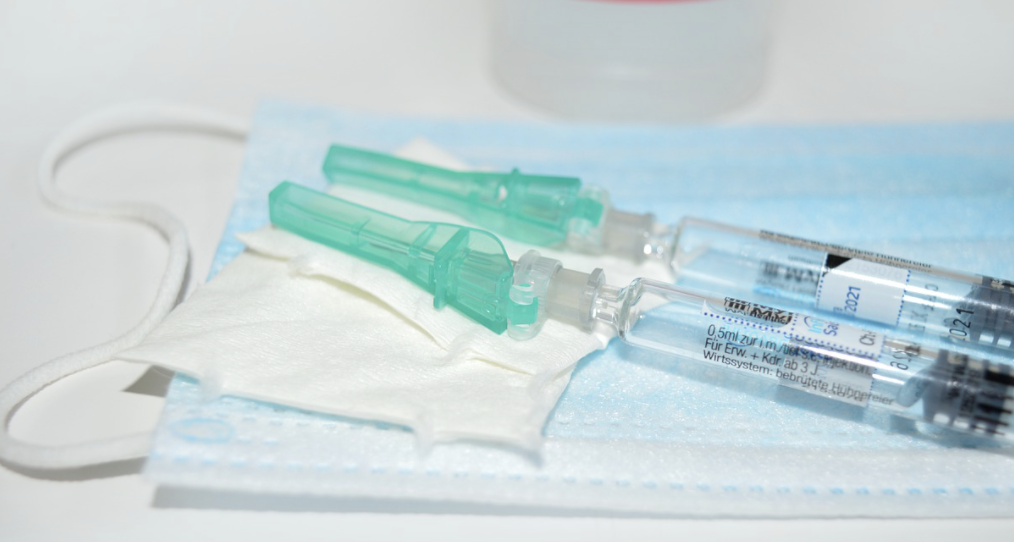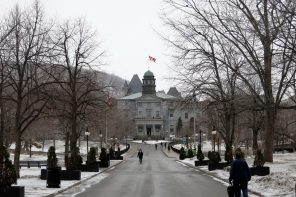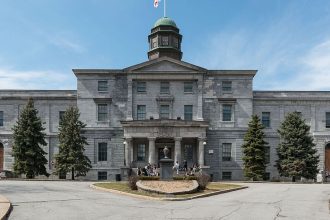Around this time during a normal year—that being a year not compromised by a life-threatening pandemic—we would all be coughing in McLennan without masks and wandering in and out of the germ cesspool that is Rez. Flu season is upon us! This unprecedented year’s flu brings increased danger, not only because its symptoms can mimic those of coronavirus, but largely because a damaged immune system and weakened lungs are especially dangerous in COVID times. Getting the flu is normally enough to get anyone sent home from school or work, but this year, getting sent home is likely followed by a COVID test and a 14-day quarantine.
COVID is the reason the university should be offering the vaccine, not an excuse to stop providing it.
But those responsible for providing us with flu vaccinations have been incredibly unhelpful. Despite the aforementioned Rez cesspool and the fact that many McGill students do not have Quebec health insurance, the McGill clinic is not offering the flu shot due to concerns about social distancing. Although McGill expects students to live in close quarters in Rez, sharing laundry machines and cafeterias—which they profit from, of course—the university has seemingly neglected establishing a social distancing system in the clinic, failing to provide students with access to absolute basic healthcare. COVID is the reason the university should be offering the vaccine, not an excuse to stop providing it.
Getting the vaccine anywhere in Quebec is a struggle. In a province that prides itself on its accessible health care, I discovered the flu vaccine is not free for everyone. Furthermore, although it was recommended that individuals receive vaccinations by the end of October, the Quebec government only began offering the vaccine on November 1st. By contrast, the United States, often dismissed by Canadians for their ineffective and unequal healthcare system, started offering the vaccine as early as September.
When I called to make a flu shot appointment at my local pharmacy on November 2nd, one day after the vaccine came out, a harried Jean Coutu employee told me they had already run out of vaccinations and that I could not even attempt to make an appointment for another month. Frustrated, I checked all the government health clinics near me. These clinics also did not let me schedule an appointment—it seemed as though no one quite knew when they would be able to administer more vaccinations.
Not providing adequate access to the flu shot is a deep failure…
Despite my struggle to find a flu shot anywhere, a friend of mine who works for Bombardier was able to easily obtain a free vaccination through his employer. Does this not sound like the American healthcare system we all disparage so much? One person cannot access very basic, very cheap healthcare when they need it most, while an employee at a prominent company can get it very easily and freely through work.
This would make more sense if we had a private American healthcare system, one that is allowed to hold patients hostage because it is accountable to stockholders instead of customers. However, we pay for this public healthcare through taxes and McGill tuition, which has not been lowered to accommodate students in COVID times. What is the point of these taxes we pay to the Quebec government and the portion of the tuition we pay to the McGill clinic if these institutions fail us when we need them most?
Everyone loves to rag on bureaucracy—especially their government and their university—for inefficiencies and carelessness, but this is not an insensitive statement or an accounting mistake; the flu shot is basic healthcare that saves lives yearly. Not providing adequate access to the flu shot is a deep failure, especially for one of the most prestigious universities in one of the wealthiest countries in the world.








